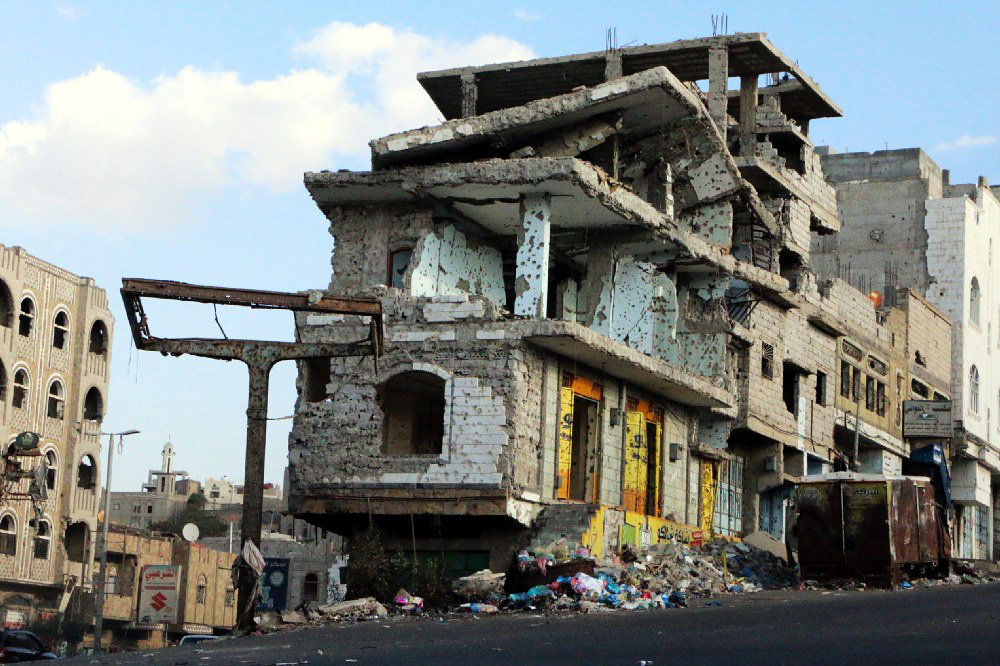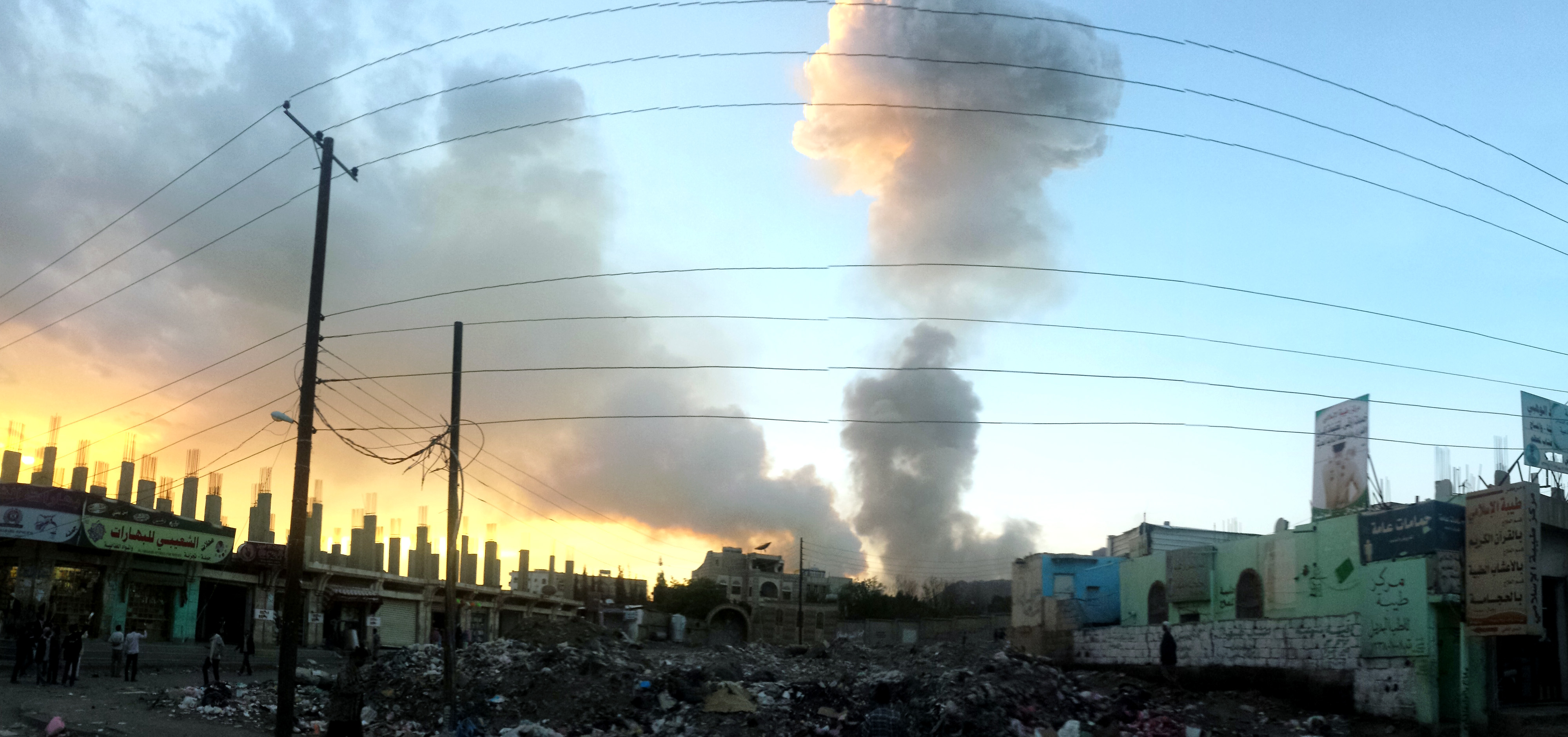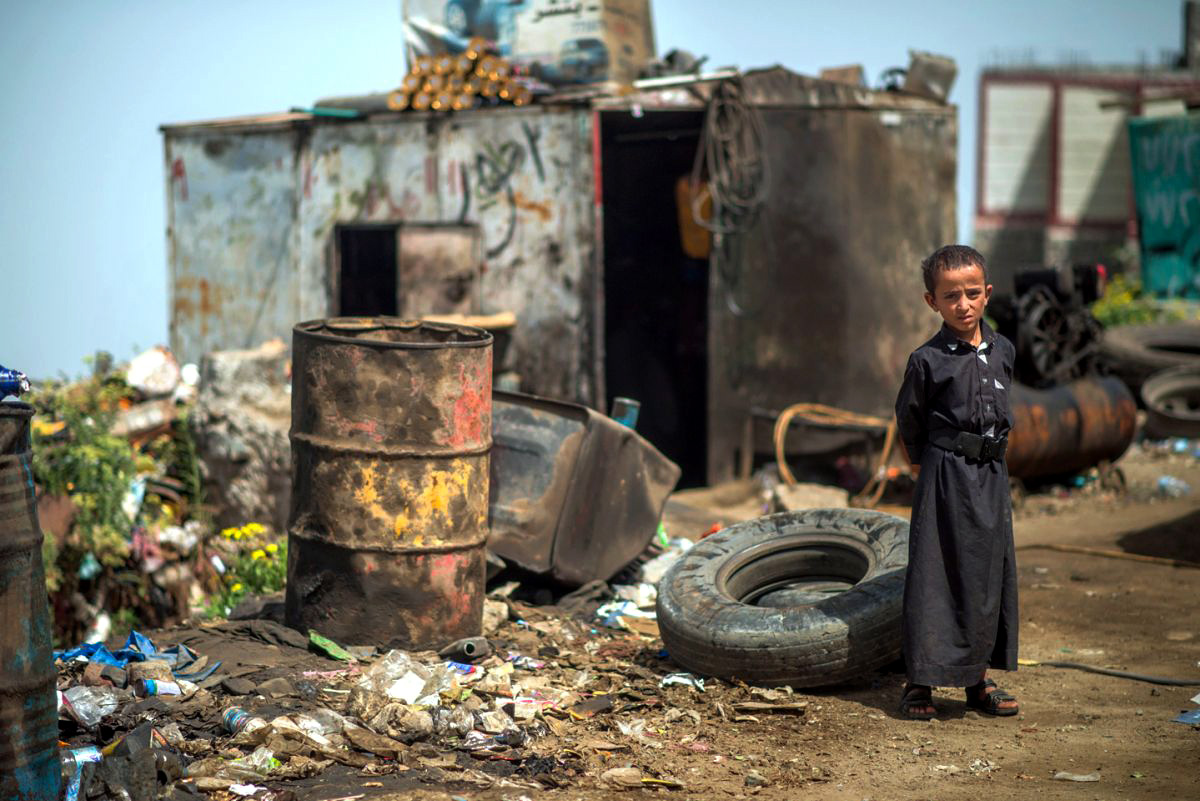Yemen
Yemen is part of the group of least developed countries (LDCs). The extremely unstable political situation and factors such as high population growth, water scarcity, high levels of unemployment, poor education and health systems, and frequent natural disasters such as droughts and floods are causing severe hardship for the people. The agricultural sector is unable to feed the people. Dependency on food imports is rising. Yemen's oil and gas reserves will soon be exhausted.
Over 21.5 million of the country's approximately 34 million people are in need of humanitarian assistance. About half of Yemen's people are facing food insecurity, and nearly half of all children under five suffer from moderate to severe stunting.
Yemen no longer has a single national state system. The internationally recognised government has lost control over large parts of the country to the Houthi militia. In the current situation, it is impossible for the country to implement the reforms that are urgently needed in areas such as, in particular, rule of law, political participation, gender equality, decentralisation and economic development.
German development cooperation with Yemen
Yemen is one of the so-called nexus and peace partners of German development cooperation. The cooperation programme focuses on drinking water supply and sanitation as well as education. Through its development cooperation, Germany also assists the Yemeni people in the fields of health, sustainable economic development, employment, food security, peacebuilding, good governance, and efforts to strengthen civil society and empower women.
The purpose of Germany's activities is to stabilise the living conditions of Yemen's people in the short term and to improve them in the medium term. Germany is providing support to what public institutions still exist for the provision of basic services (water supply, health, education). The BMZ builds flexibly on the humanitarian assistance provided under the lead of the Federal Foreign Office.
Cooperation during the current crisis
In the current crisis, Germany has not suspended its cooperation with Yemen. Rather, it has adapted the programme to the challenges. Projects are implemented with as little government-to-government cooperation as possible.
Due to the security situation, no German personnel is permanently on the ground at present, but Yemeni staff members of the Deutsche Gesellschaft für Internationale Zusammenarbeit (GIZ) are keeping a large number of projects running, based on continuous dialogue with GIZ headquarters. Germany also supports the work of non-governmental local partners and international organisations such as the World Food Programme (WFP), the Food and Agriculture Organization of the United Nations (FAO) and the United Nations Children's Fund (UNICEF).
The Federal Ministry for Economic Cooperation and Development (BMZ) has significantly increased its support for Yemen in the last few years. In 2023, the BMZ committed a total of 163.7 million euros in new funding. This comprises 63.9 million euros in funding for Financial and Technical Cooperation and 95.6 million euros in funding for transitional development assistance. 4.2 million euros was made available under the Special Initiative “Displaced Persons and Host Countries”. Further funding under transitional development assistance and under the Special Initiative is to be provided in the course of 2024.
A destroyed building in Al Qahirah district of Taiz, Yemen
Results
Thanks to German assistance, some 787,000 pupils (including 383,000 girls and 92,000 internally displaced persons) have received improved education since 2015. 44,500 school employees (including over 17,400 women) now enjoy better working conditions. Over 2,560 classrooms have been repaired, improving the learning environment for about 183,000 children (about 53 per cent girls).
Moreover, some 11.3 million people have been given better access to water and sanitation since 2015. In rural areas, about 285,000 households have been connected to safe drinking water supplies, and another 140,000 households have been provided with adequate sanitation.
Over 100,000 children have been born in certified health care facilities since 2017. More than 275,000 vouchers for birth-related health services have been distributed to pregnant women. At present, renovations are under way at 43 health facilities and isolation wards. These facilities reach about 3.4 million patients a year. Quality certification procedures have been undergone by 49 health centres. Germany has assisted 44 facilities in restarting operations. They now devote special attention to the needs of disadvantaged groups.
Moreover, more than 9,900 loans have been provided via microfinance institutions since 2021, resulting in the creation of over 22,400 jobs. Through cash-for-work projects, over 56,300 jobs have been created since 2015, mostly in rural areas.
SDG trends for Yemen
- On track or maintaining SDG achievement
- Moderately improving
- Stagnating
- Decreasing
- Trend information unavailable



















